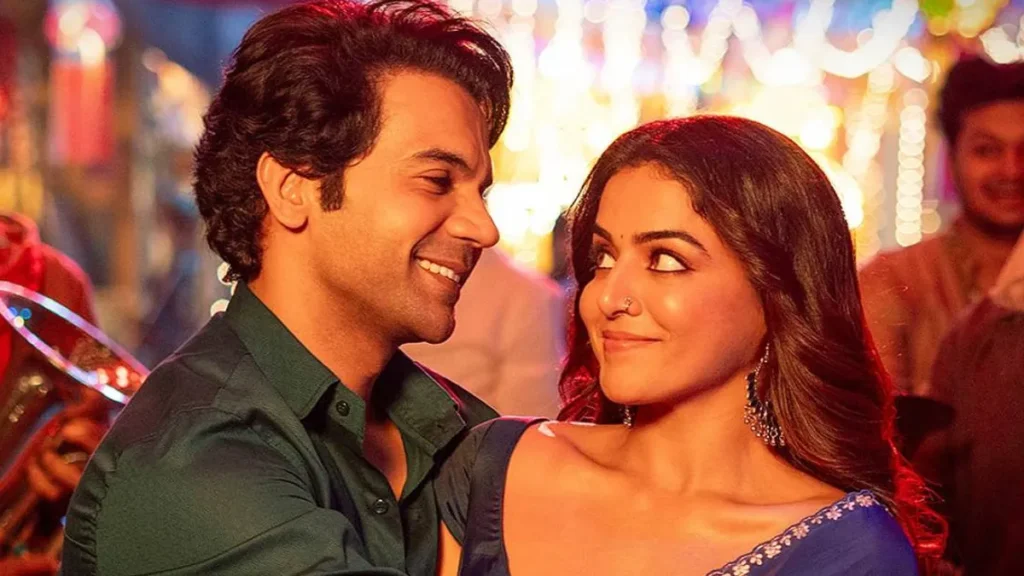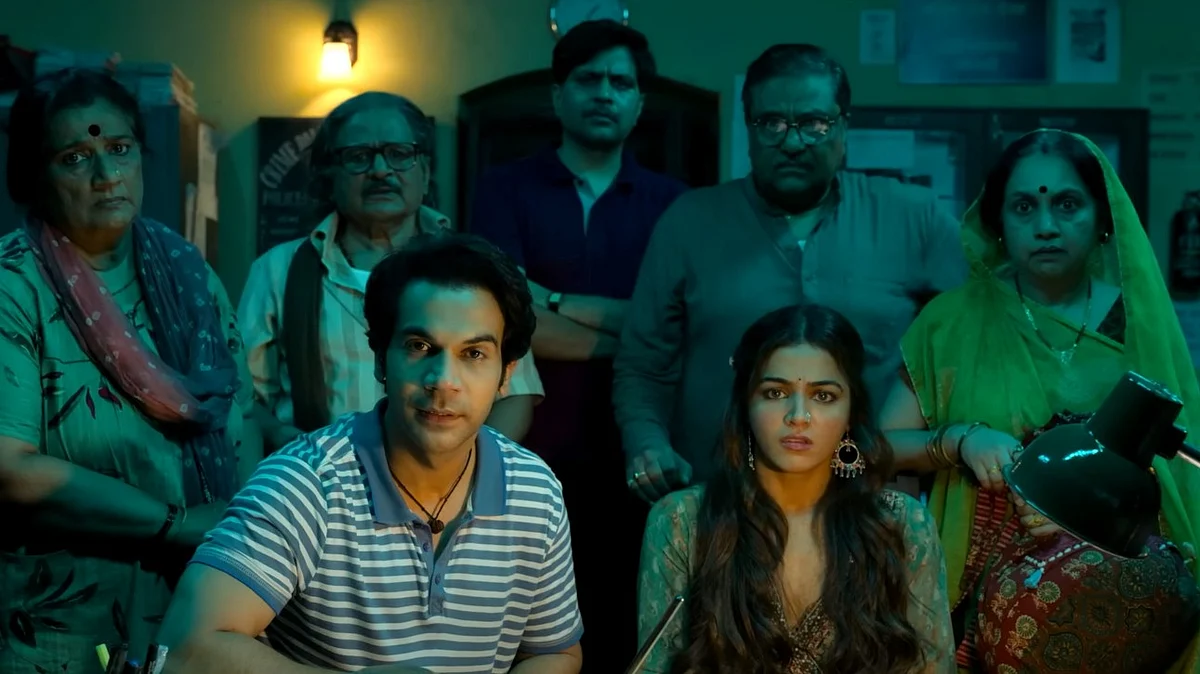
In a subcontinent persistently blinded by faith, Karan Sharma’s Bhool Chuk Maaf smells of flowers and incense. Everyone has a reason to pray. For our leading man, Ranjan (Rajkummar Rao), it’s the elusive government job he desperately seeks – one that slips through his fingers, partly due to his lack of skill and mostly because of rampant corruption. He also dreams of marrying the feisty Titli (Wamiqa Gabbi), whose rebellion fades the moment her patriarchal father raises an eyebrow. For her family, no other qualification matters beyond a secure government post. So, where do the couple go from here?
Set in Varanasi, Bhool Chuk Maaf operates within the now-familiar template of small-town comedies. The colour grading is extra vibrant, the touristy visuals serve as backdrops, and the decibel levels are consistently loud. There’s an attempt to induce laughter in the first act, but it falls flat. A barrage of bland songs follows in quick succession. Sharma’s film is so drenched in déjà vu that you wouldn’t miss a thing if you dozed off for twenty minutes.
Things only begin to pick up at the interval, when Ranjan is struck by an unexpected twist. He finds himself trapped in a bizarre psychological loop, reliving the day before his wedding over and over. The film instantly perks up as Ranjan starts investigating this strange phenomenon.

Here, Karan Sharma blends the everyday realities of life in North India’s temple towns with a fresh, high-concept idea. We witness chaotic weddings, toxic family ties, corruption, unemployment, and religion bound by classic Bollywood tropes. Yet beyond the novelty of the twist, Bhool Chuk Maaf refrains from offering a meaningful takeaway. Rather than interrogating the systemic expectations that fuel these issues, the film focuses on giving Ranjan a hero’s glow. He gets the girl and resolves his predicament, but it’s unclear what the film is trying to say.
In a stronger film, the writer might have emphasized the need for a merit-based society or addressed the urgency of uprooting corruption. There’s also a fleeting angle on poverty and community service, but the film fails to explore it effectively. By the time it ends on an utterly random note, Bhool Chuk Maaf inexplicably elevates the enabler of corruption (Sanjay Mishra), forcing the victims (Ranjan, Titli, and their families) to look to him for wisdom.
ALSO READ: ‘Hum Do Hamare Do’ review – a striking lead cast elevates a film on familial bonds
The silver lining is Rajkummar Rao. He understands exactly what the role demands and carries the film with his comic timing and command over the language. Wamiqa Gabbi, in her first full-fledged Bollywood outing, throws herself into the part, but her performance often feels exaggerated. As Titli, she oscillates between being annoying and annoyed, rarely finding nuance. The supporting cast is largely forgettable, except for Ishtiyak Khan, who makes the most of his brief screen time.
Running for over two hours, Bhool Chuk Maaf could easily have worked better as a 30-minute short film. Karan Sharma overburdens the narrative with excesses that sap its energy. While Rao and the improved humour in the latter half help nudge the film into “watchable” territory, it also signals the urgent need to reinvent the once-successful small-town comedy formula.
Rating: ★★ 1/2

